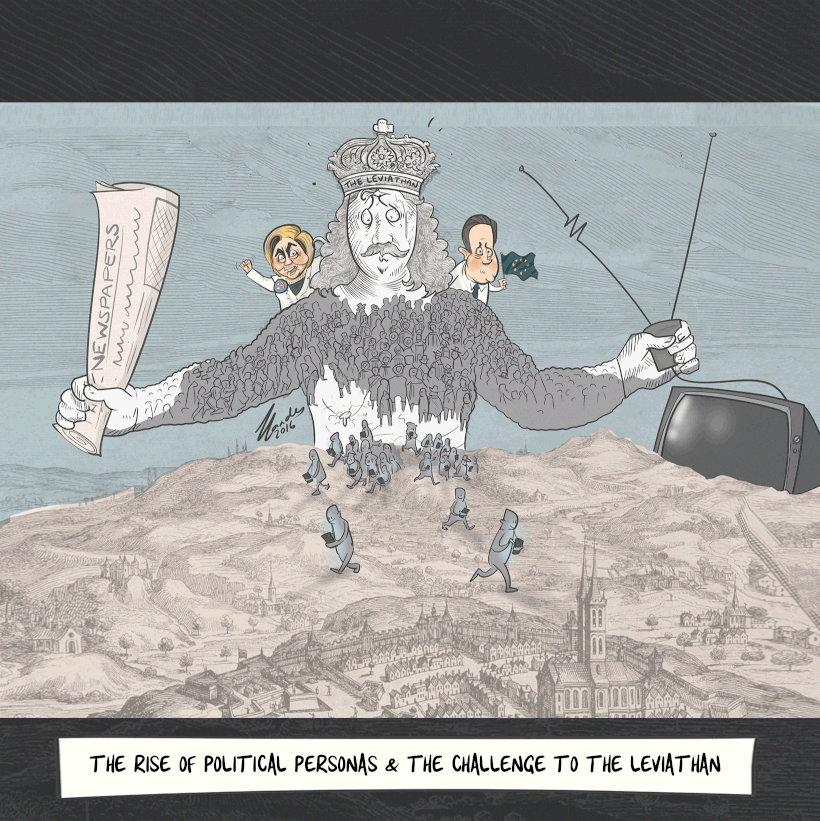The Presidential Persona Paradox of Barack Obama: Man of Peace or War President?
DOI:
https://doi.org/10.21153/ps2016vol2no2art614Keywords:
political persona, political legacy, Middle East, Obama, United StatesAbstract
On a wave of hope and rousing talk of building global bridges, President Barack Obama won office in 2008, in part on a pledge to end the wars in Afghanistan and Iraq and to close the Guantanamo Bay detention facility. In contrast to his predecessor, who launched America into long, costly and ineffectual wars, Obama was seen to be more of a dove than a hawk. However, at the end of his two-term tenure America has been in a state of foreign belligerence for all eight years, making Obama the longest serving U.S. war president in history.
The political persona of Obama as a dove originated with his opposition to the 2003 intervention in Iraq while he was still a senator. This was then cemented early in his presidency with his 2009 speech in Cairo, which seemed to signal a profound and optimistic realignment of America’s intentions towards the Middle East and its peoples. This speech was a watershed in defining his political persona and was instrumental in his being the only U.S. president to be awarded a Nobel Peace Prize while still in office. However, during his term the underlying political landscape of the Middle East changed significantly, with the withdrawal from then return to Iraq, the nuclear agreement with Iran, the increasingly chaotic legacy of the Arab Spring, the continued impasse of the Israel-Palestinian peace, the disintegration of Yemen and Libya and the rise of the Islamic State as the new threat in the political vacuum of northern Iraq and eastern Syria, and a resurgent Russian role in the region. All of these have provided novel challenges to Washington and a president attempting to live up to the positivity of his early days in office.
At the end of his presidency Obama is faced with a public burned by the disappointments of the Iraq and Afghanistan campaigns and the new entanglements in the Middle East. This paper seeks to offer insights into the juxtaposition of Obama’s political persona and reality, as well as exploring what his political legacy might really be.
Downloads
References
BBC. Reaction: Obama's Cairo speech. Web. 4 June 2009.
Bennett, W Lance. News: The Politics of lllusion. Tenth Edition. Chicago: University Of Chicago Press, 2016. Print.
Dieck, Helene. “Public Opinion and U.S. Military Interventions: The President's Room for Maneuver after the Cold War.” Conference Papers -- American Political Science Association (2010): 1-33.
Donsbach, Wolfgang and Michael W Traugott. The SAGE Handbook of Public Opinion Research. London: SAGE, 2008. Print.
Drake, Bruce. More Americans say U.S. failed to achieve its goals in Iraq. Web. 12 June 2014.
---. Obama and drone strikes: Support but questions at home, opposition abroad. Web. 24 May 2013.
Foyle, Douglas C. Counting the Public In: Presidents, Public Opinion, and Foreign Policy. New York: Columbia University Press, 1999. Print.
Landler, Mark. For Obama, an Unexpected Legacy of Two Full Terms at War. Web. 14 May 2016.
Marshall, P David, and Kim Barbour. “Making Intellectual Room For Persona Studies: A New Consciousness And A Shifted Perspective.” Persona Studies 1.1 (2015): 1–12. Web.
Mathes, Michael. US Congress wary of greenlighting 'Iraq 2.0'. Web. 12 September 2014.
Mueller, John. War, Presidents and Public Opinion. New York: Wiley, 1973. Print.
New York Magazine. 53 Historians Weigh In on Barack Obama’s Legacy. Web. 11 January 2015.
Norwegian Nobel Committee. The Nobel Peace Prize for 2009. 2009. Press release.
Obama, Barack. Remarks By President Obama To The Turkish Parliament. 2009. Press release.
---. Remarks by the President on a New Beginning. 2009. Press release.
---. Remarks by the President on the Iran Nuclear Deal. 2015. Press release.
Pew Research Center. As Obama Years Draw to Close, President and U.S. Seen Favorably in Europe and Asia. Web. 29 June 2016.
---. Growing Support for Campaign Against ISIS – and Possible Use of U.S. Ground Troops. Web. 24 February 2015.
---. Libya: Steady Views, Declining Interest. Web. 8 September 2011.
---. More Express Sympathy for Israel than the Palestinians. Web. 28 August 2014.
---. Most Think the U.S. Has No Responsibility To Act in Iraq. Web. 18 July 2014.
---. Opinion of Iran. Do you have a favorable or unfavorable view of Iran? Web. 2015.
---. Public Continues to Back U.S. Drone Attacks. Web. 28 May 2015.
---. Public Says U.S. Does Not Have Responsibility to Act in Syria. Web. 14 December 2012.
---. Support for Iran Nuclear Agreement Falls. Web. 8 September 2015.
Public Policy Polling. Trump Lead Grows Nationally; 41% of His Voters Want to Bomb Country From Aladdin; Clinton Maintains Big Lead. Web. 18 December 2015.
Saad, Lydia. Seven in 10 Americans Continue to View Israel Favorably. Web. 23 February 2015.
“Stephen Colbert Helps President Obama Polish His Résumé On The Late Show.” CBS, 18 October 2016. Television.
Street, John. “The Celebrity Politician: Political style and popular culture.” Media and the restyling of politics: consumerism, celebrity and cynicism, edited by John Corner and Dick Pels, London: SAGE, 2003, 85 –89. Print.
Zenko, Micah. Obama’s Embrace of Drone Strikes Will Be a Lasting Legacy. Web. 12 January 2016.
Downloads
Published
Issue
Section
License
Copyright (c) 2016 Persona Studies

This work is licensed under a Creative Commons Attribution-NonCommercial 4.0 International License.







